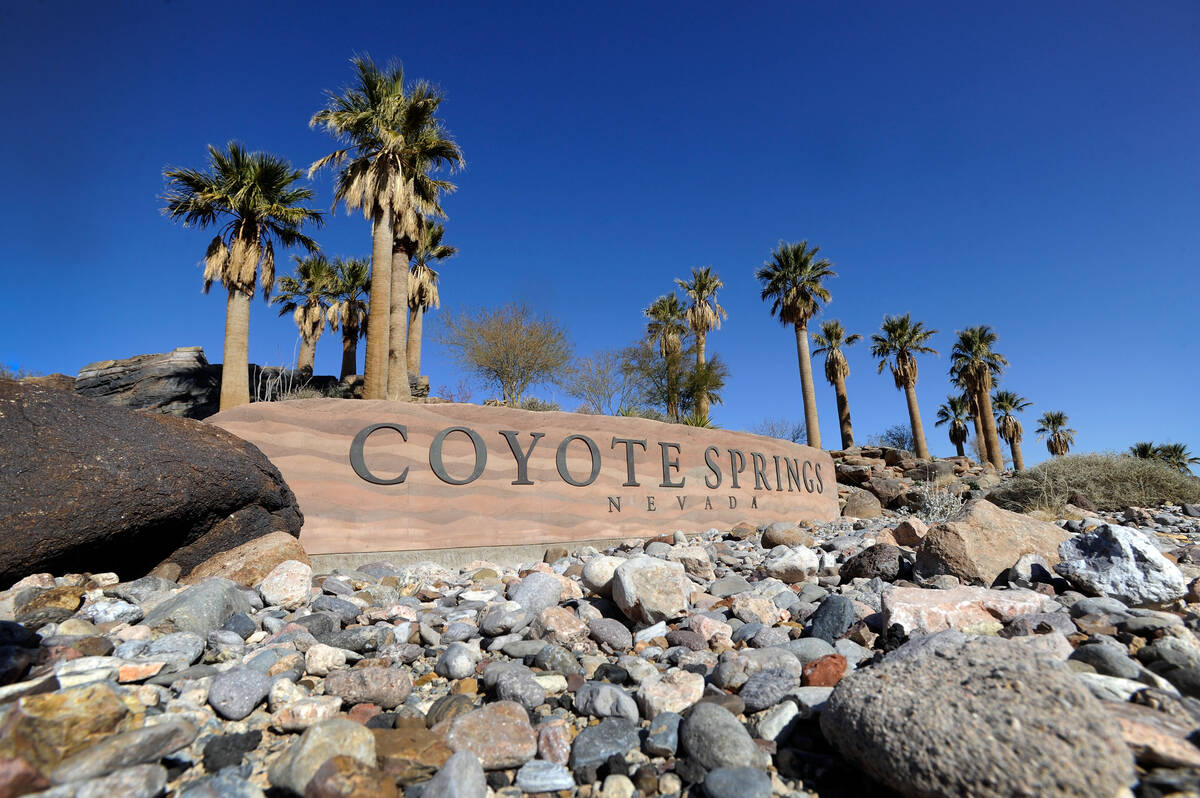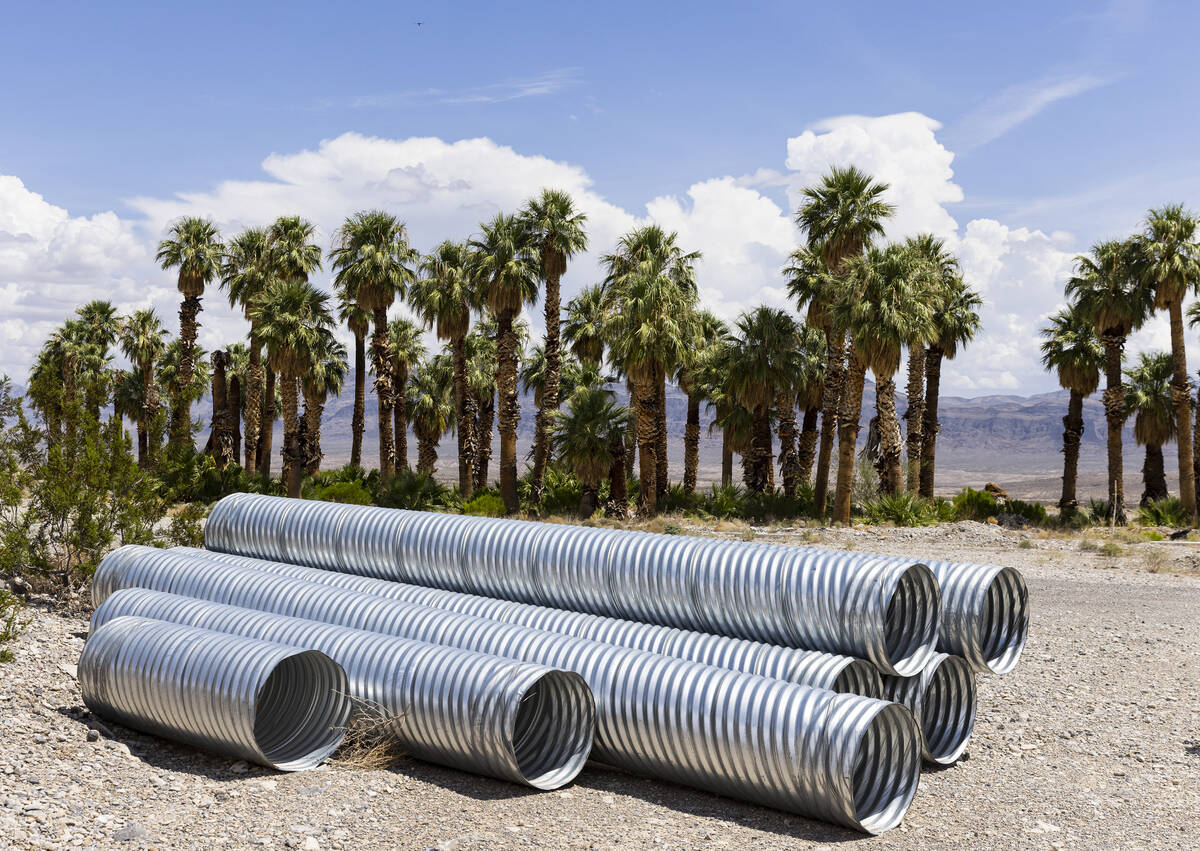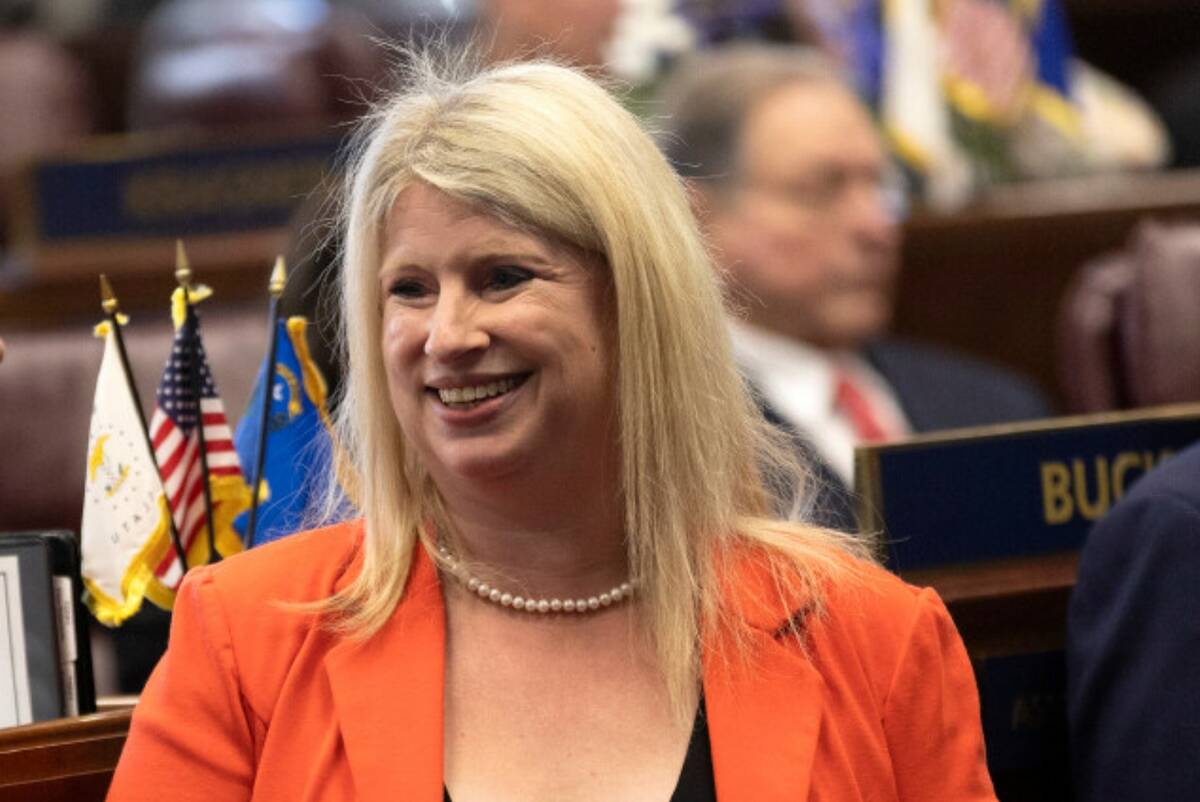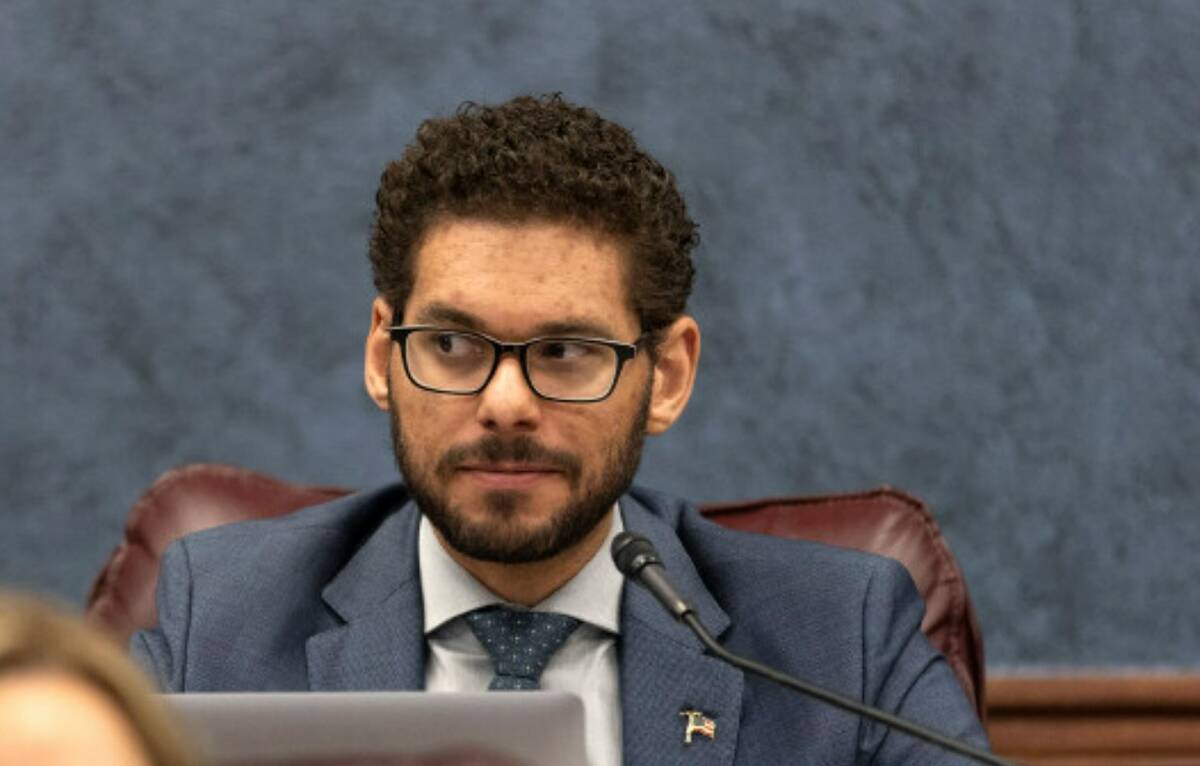After pushback from developers, groundwater bill won’t move forward
A bill that advocates pitched as a major step toward fixing Nevada’s growing groundwater problem was all but dead in the state Legislature on Friday after intense pushback from big name developers and powerful water brokers.
Assembly Bill 387, which had drawn support from a wide array of groups — including environmentalists, ranchers and water managers from both rural and urban counties — was not expected to receive a committee vote ahead of a Friday deadline for bills to pass out of second house committees, said Sen. Julie Pazina, D-Las Vegas, chair of the Senate Natural Resources Committee.
The proposal would have required the state to use the “best available science” when managing conflicts over water rights. It also would have provided explicit authority to Nevada’s state engineer to manage separate basins together if water use in one basin would affect water levels somewhere else, such as a separate groundwater basin or in surface waters like streams and lakes.
Mining companies, water brokers and real estate developers, including those behind the Coyote Springs community, mounted a substantial fight against the proposal over concerns that the shift could upend Nevada’s prior appropriation system and diminish the value of their water rights.
The death of the proposal raises questions about what it would take to change Nevada’s century-old water law and whether any substantive changes could survive the ire of powerful developers.
“Sensible water management is being held hostage by developers clinging to paper water,” Kyle Roerink, executive director of the Great Basin Water Network, told the Las Vegas Review-Journal on Wednesday.
In the 1960s, Nevada identified 232 separate groundwater basins that for more than a half-century have served as the basis for groundwater management throughout the state.
Today it’s estimated that half of those basins are overallocated, meaning that there are more water rights granted than actual water exists. And of those overallocated basins, about half are overpumped, meaning more water is taken out of them annually than naturally recharges through snowmelt and other processes.
Seeking clarity
The bill’s sponsor, Assemblyman Howard Watts, D-Las Vegas, said part of the problem is that there is a potential for conflict with rights outside of those “essentially somewhat artificial” boundaries drawn to designate the individual basins.
Supporters of the bill said it would have strengthened Nevada’s water law by clarifying the state engineer’s authority to manage water sources and explicitly allowing him to identify any potential connections between ground and surface waters or separate groundwater basins that may affect one another.
Those changes, they argued, would better protect those with senior water rights and help bring those basins back into equilibrium.
“We felt that 387 would clarify and give (the state engineer) more authority and strengthen his position on what he thought he should or should not do,” former Pershing County Water Conservation District Manager Bennie Hodges said.
State Engineer Adam Sullivan said during a hearing on the bill last week that the proposal was consistent with how the state manages basins, noting that “the recognition of hydrologic realities has to be central to our decision-making.”
In 2017, the Legislature passed a law that declared that it was the policy of the state to manage Nevada’s waters conjunctively, “regardless of the source of the water.”
But Sullivan told lawmakers that the office’s implicit authority to manage those basins collectively “has increasingly been questioned.”
Coyote Springs development
One of the most prominent examples of that is the legal battle over rural water rights that has held up development of the long-sought Coyote Springs development some 60 miles northeast of Las Vegas.
In 2020, then-State Engineer Tim Wilson issued an order that essentially merged several basins and set limits on how much water could be drawn from the combined set of basins. That decision included basins with water rights owned by Coyote Springs, which sued the state alleging that the decision was illegal and effectively left its real estate with no economic value.
Clark County District Judge Bita Yeager sided with Coyote Springs in a decision last year, ruling that the state did not have the authority to create so-called “superbasins.” That decision was appealed, and the case is before the Nevada Supreme Court.
Those same concerns spilled over into the debate on AB387, and ultimately spelled its end.
“AB 387 will be used to achieve the wrongful and continuing efforts of the State of Nevada to shut down the Master Planned Community of Coyote Springs,” Emilia Cargill, chief operating officer and general counsel at Wingfield Nevada Group, the company behind Coyote Springs, said in written testimony opposing the bill.
In that letter, Cargill argued that giving the state engineer the ability to identify hydrologically connected waters currently deemed separate would “halt new business, economic growth and development” across the state.
Watts, the bill’s sponsor, said ignoring the connections between groundwater basins “is a legal fiction that doesn’t align with science.”
The waters are owned by the state, Watts added, and the rights to use them are governed by Nevada’s century-old law of prior appropriation, essentially a pecking order that puts the owners of the oldest rights first in line to tap their waters.
“Ultimately if their plan is to develop a new bedroom community outside of Las Vegas or flip water rights, and it doesn’t align with science and the resources aren’t there to support it, then that should not be moving forward,” Watts said Thursday.
Watts said he expects the conversation on how Nevada should address the issue of managing its scarce resource will continue after the legislative session ends.
Other proposals are still moving through the Legislature that he said will aid in addressing the groundwater issue somewhat. That includes a bipartisan effort to add $3.1 million in funding to the Division of Water Resources budget over the next two years to address staffing problems, as well as a proposal from Sen. Pete Goicoechea, R-Eureka, to fund a program to retire water rights for compensation.
But getting clear policy on the books as to how the state should manage water-rights conflicts, Watts said, “is going to become increasingly important.”
Contact Colton Lochhead at clochhead@reviewjournal.com. Follow @ColtonLochhead on Twitter.

















